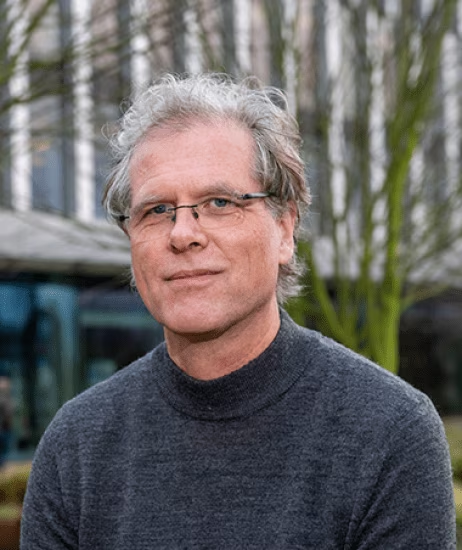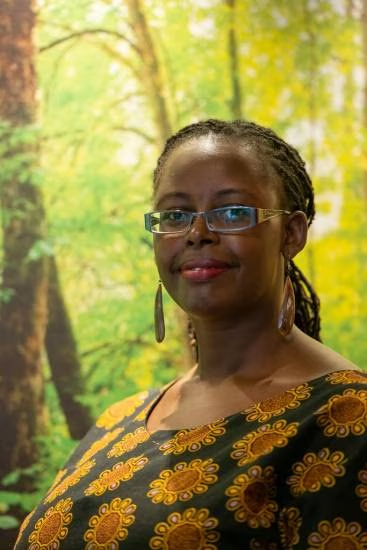The Nairobi Urban Hub undertakes impact-driven research on how residents in urban informal settlements can better anticipate, cope with, adapt to, and transform through change and disruptions. Working in acutely resource-scarce contexts, we explore how (frugal) innovation processes can be optimized to generate creative fixes that stimulate community resilience of the urban poor.

How are we conducting research?
Shocks and stressors such as urbanization, pandemics, protracted crises, climate change, and other disaster risks increasingly present serious challenges for all urban residents. However, adverse impacts are imposed on the urban poor whose vulnerability is complexified by underlying factors such as poverty, exclusion, illegality, and powerlessness. This puts the resilience of over 1 billion people living and working in informal settlements on high research and political agenda.
To unravel this subject, we have implemented multiple projects involving local governments, (academic) knowledge centers, NGOs, grassroots organizations, with the local communities at the core. Our research applies a blend of community-based action research, citizen science, and desk research.
How does our research make an impact?
In Nairobi, slum upgrading is on a high political agenda as evidenced by the declaration of Special Planning Areas in some of the largest informal settlements. The multidisciplinary knowledge our research generates is thus timely as it gives new impetus to rethink pro-poor development and support resilience-building efforts at the grassroots. At the hub, we value processes. Searching and learning is where all change begins. We employ creative research tools that closely connect to the public sector (governments), private and social sectors (NGOs and grassroots actors) in informal settlements. Further, we maximize urban knowledge exchange by connecting local and international expertise and structuring cross-city learning. As such, our networks emerge productively and our content focus adds value.
Projects of The Nairobi Urban Hub
Informal settlements are dynamic, with inhabitants being exposed to multiple yet interacting shocks. We conduct research on how different coping strategies emerge and vary across space and time. We explore how smart and frugal people, technologies, and governance interact with vulnerabilities related to health, safety and livelihoods.
Why and how are we conducting research?
This study demonstrates how frugal and smart conditions of informal settlements may lead to different pathways of resilience. Frugality is a mindset of doing more with less. Smartness refers to capacitated community strategies that catalyze on frugal innovations, thereby improving community resilience.
Evolution of the vulnerability context, coping strategies and resilience outcomes from the 1970s to the new millennium is explored through a multiple case study in four villages in Mathare and Korogocho in Nairobi. We apply participatory action research designed by VCC, International Center for Frugal innovations, and Ghetto Foundation, an organization of community researchers from Mathare.
How does our research make societal impact?
This research makes a significant theoretical contribution to the scholarly works on community resilience and frugal innovation in informal settlements. It also offers empirical insights on how to make Nairobi’s informal settlements more robust and adaptive to shocks and disturbances. Policy makers, learn to make use of existing community initiatives and how to further enable communities to cope with shocks. Local researchers bring in local knowledge, while the community learns to integrate local research in their development processes. The research is meaningful to the ongoing slum upgrading initiatives (Special Planning Areas) initiated by the local government of Nairobi.
Team
- Dr. Jan Fransen - IHS, VCC
- Beatrice Hati, MSc PhD candidate - ICFI
- Dr. Elsie Onsongo - ICFI
- Dr. Naomi van Stapele - ISS, Ghetto Foundation
- Samuel Kiriro - Ghetto Foundation
- Rosebella Nyumba - ICFI
This research connects two contemporary trends; digital platforms and resilience. It explores in what ways the access and use of digital platforms varies between and within households in a large informal settlement in Nairobi (Mathare), and how this may influence the capacity of households to cope with shocks and disturbances.
Why and how are we conducting research?
Digital platforms may enable informal settlers to become more resilient, but the variances in the access and use across households may mediate the level of resilience during crises. Such variances in informal settlements are so far unstudied. This research explores the differences in access to and use of platforms in Mathare and assesses how such differences associate with differences in the level of resilience between and within households.
A case study approach is adopted, with a blend of desktop research, in-depth qualitative interviews and focus group discussions. The study is conducted in collaboration with community researchers.
How does our research make a societal impact?
For households, the research provides practical insights on how digital platforms can be used as a tool to boost their resilience during crises. For local leaders and policy makers, the study provides guidance on how to reduce differences in household resilience caused by platforms. Additionally, since the project is undertaken in a settlement where upgrading is underway, the work offers better embedding of digitalization into slum upgrading initiatives.
The project further builds the knowledge and skills of community researchers and other residents to act in their community as agents of change and fosters cooperation with local stakeholders.
Team
- Dr. Jan Fransen - IHS, VCC
- Dr. Erwin van Tuijl - ICFI, ISS
- Dr. Elsie Onsongo - ICFI
- Beatrice Hati, MSc PhD candidate - ICFI
- Harrison Kioko, MSc.
This is an impact-driven research programme developed at the Kenya Hub of ICFI, to generate and share knowledge on resilience in informal settlements in Nairobi and elsewhere. We conduct empirical research on how adaptive governance affects community capacities to cope with shocks, how scarce resources are optimized through frugal innovation to foster local adaptive capacities, and how emergent coping strategies define new forms of (in)equality.
Why and how are we conducting research?
This programme is inspired by the outcomes of resilience and frugality works conducted at the hub in the past years which necessitate an in-depth exploration into frugality, governing structures and inclusion in the resilience pathways of informal settlements.
We apply a systematic collaborative process in order to maximize impact and policy relevance. This involves partnerships with local governments, knowledge centers, NGOs, CBO, with the local communities at the core. Community-based action research and citizen science are adopted to generate more impact locally and leave research knowledge within communities. International (comparative) studies conducted in other cities are also embedded in the programme.
How does our research make an impact?
The programme generates multidisciplinary knowledge that is scientifically reliable, context-appropriate, socially robust and actionable, thus useful to local communities, scholars, practitioners, policy-makers, humanitarian and development agencies.
The programme will host cross-city dialogues between researchers, policy makers and communities in Nairobi, Rotterdam, The Hague, and New Delhi thus facilitate practical learning on how resilience can be addressed as a shared responsibility across scales, societies, disciplines, and actors.
Additionally, local authorities in Nairobi are actively rethinking pro-poor development, evidenced by the declaration of Special Planning Areas in informal settlements. This programme is responsive to this agenda as it embeds adaptive governance, frugality, inclusivity and resilience to the upgrading of informal settlements.
TEAM
- Dr. Jan Fransen - IHS, VCC
- Beatrice Hati, MSc PhD candidate - ICFI
- Prof.dr. Peter Knorringa - ICFI, ISS
- Dr. Erwin van Tuijl - ICFI, ISS
- Dr. Elsie Onsongo - ICFI
- Alice Menya - Nuvoni Research
- Stephen Nyagaya - Nuvoni Research
Addressing vulnerability and construction of resilience among the urban poor will depend on strategic and productive partnerships of grassroot actors with multi-stakeholders over multi-scales.
Nairobi’s Double Disaster: Floods and Forced Evictions
Nora Yunes Elafifi is a master’s student in Urban Management and Development at the Institute for Housing and Urban Development Studies. She now shares her firsthand observations of the aftermath and the experiences of local residents and NGOs.
Research Team
Are you an urbanist in Nairobi or beyond and would you like to contribute to the research agenda of the Urban Hub? We welcome your contribution. Reach out to one of the lead researchers.
 dr. Jan Fransen (VCC | IHS)
dr. Jan Fransen (VCC | IHS)Principal Investigator | Lead Urban development and research expert
Email address dr. Elsie Onsongo (ICFI | NCIR)
dr. Elsie Onsongo (ICFI | NCIR)IFCI Hub Manager Kenya
Email address Beatrice Hati, MSc
Beatrice Hati, MScCoordinator Nairobi Urban Hub
Email address dr. Erwin van Tuijl (VCC | ISS)
dr. Erwin van Tuijl (VCC | ISS)Researcher
Email address
Funding
Research activities are co-financed by VCC, ISS and ICFI, while development projects are financed by Stichting DAIDA and Wilde Ganzen
EADI ISS Conference 2021
In a panel on “The Makeshift City” during the EADI ISS Conference 2021 we initiated a public discussion on informal settlements with an international group of researchers.
Trialog Annual Conference 2021
During the Trialog Annual Conference 2021, we set up a cross-city dialog to explore resilience in informal settlements with policymakers, community organizers and researchers.
Partos Workshop
In a session on “Community-Led Development” we presented one of our community resilience initiatives (CRI) in Dandora as an illustrative case of resilience building strategies during Covid19.
Video's
Perspectives of community life in informal settlements
In this video Beatrice Hati is a panelist on a conversation on perspectives of community life in informal settlements in the Global South and North.

Community dialogues and initiatives
The Nairobi Urban Hub is part of a network of community organizations which is lobbying for comprehensive settlement upgrading in Mathare. In addition, Ghetto Foundation as community researchers collected all data and uses its expanded network and knowledge to discuss with the wider community and improve community resilience.


Education
This course discusses the challenges of sustainable urban development.
Faculty: Institute for Housing and Developmental Studies (IHS)
Coordinator: Jan Fransen
This course discusses multi-disciplinary factors driving economic growth, creativity, innovation and entrepreneurship in a global economy.
Faculty: Erasmus School of Social and Behavioral Sciences
Coordinator: Jan Fransen
The overall aim of the course is to gain insight into the fundamental urban and regional economic processes that explain sustainable economic development and resilience, as well as to develop the ability to analyse and govern these processes in practice.
Faculty: Faculty: Institute for Housing and Developmental Studies (IHS)
Lecturer: Jan Fransen
Partners
Collaborators
VCC
ISS
IHS
ICFI
Stichting DAIDA
Wilde Ganzen
Community-based partners
Ghetto Foundation
Mustard Seed CBO
Dandora Transformation League
Results
Construction of a multipurpose community centre in Dandora
Development of a community resilience initiative
